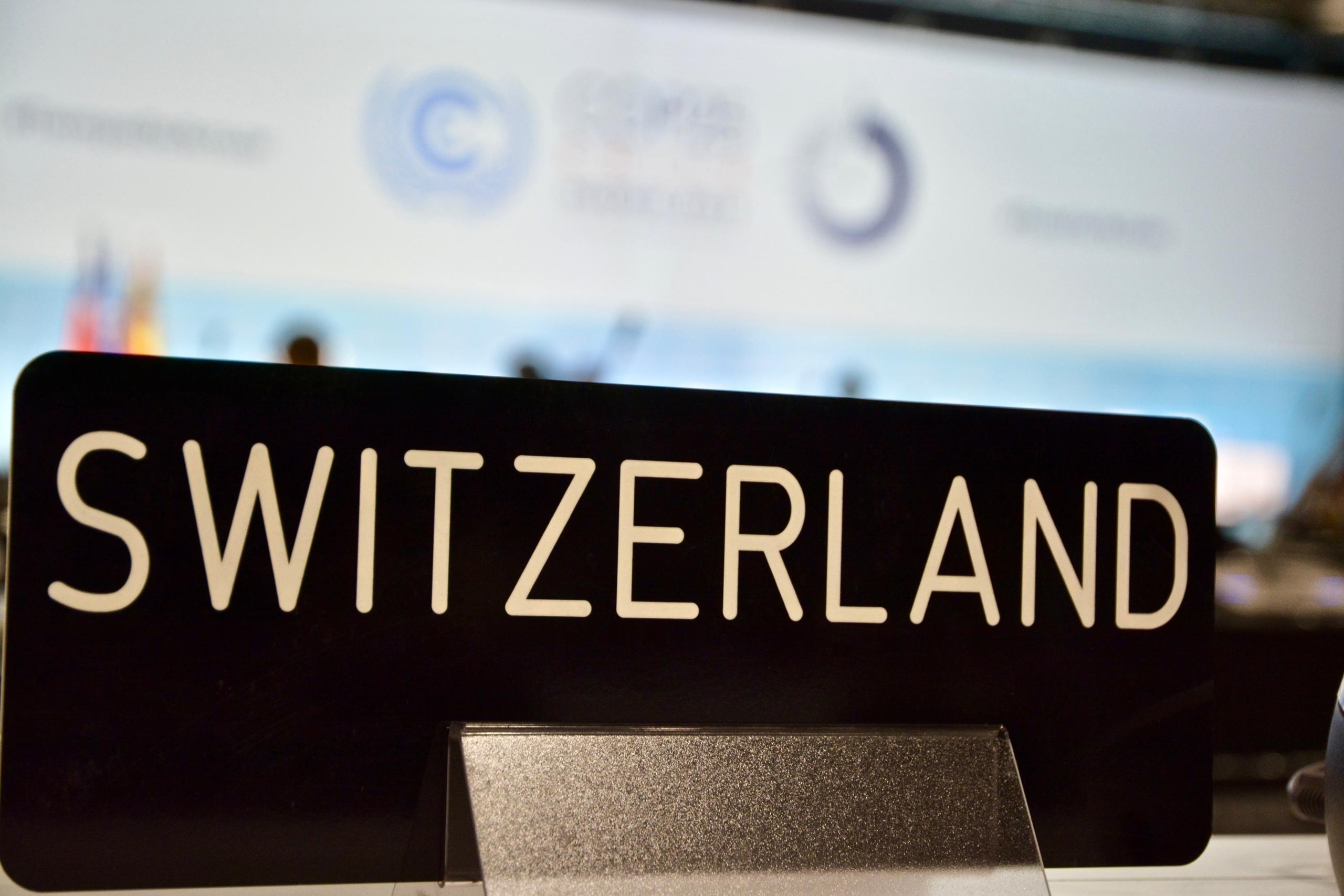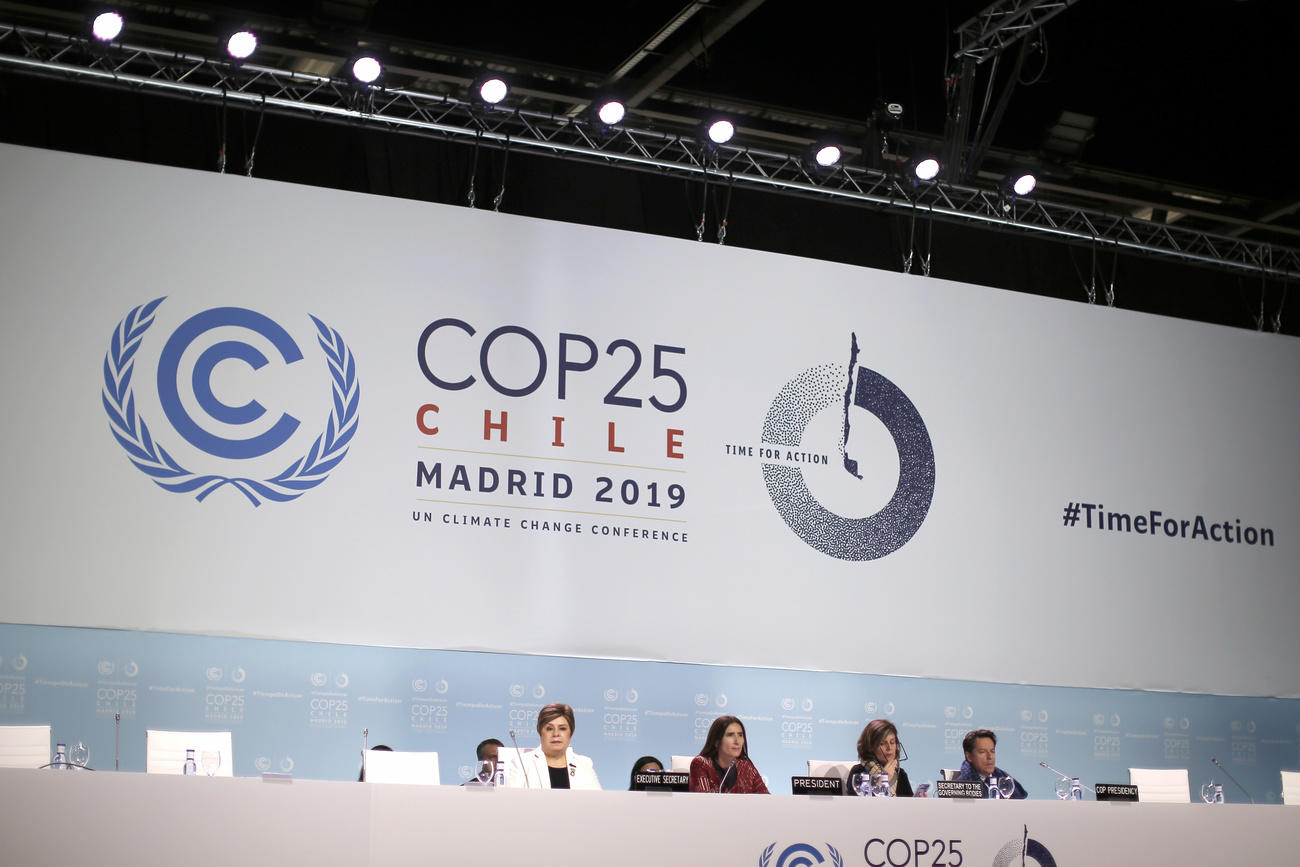Swiss disappointed by lack of progress on carbon markets at COP25

As the longest ever UN climate talks concluded on Sunday, the decision to postpone the decision on the thorny issue of carbon markets for next year has left Swiss negotiators disappointed.
Over 40 hours of overtime negotiations, including two back-to-back late night discussions, failed to resolve the tough issue of carbon markets. Article 6 of the Paris AgreementExternal link allows emission reductions to be implemented in one country and the credit to be transferred to another and be counted towards its commitments (known as nationally determined contributions or NDC). But the details of how to set up a fair and accountable carbon market could not be resolved in Madrid. The matter has been postponed for COP26 in Glasgow next year. The Swiss Federal Department of Environment expressed its disappointment via Twitter.
CH regrets the absence of a decision for an effective carbon market under the Paris Agreement and announces that it will apply robust market rules and refrain from using Kyoto units in its bilateral agreements until robust rules can be agreed at the international level. #COP25External link
— FOEN (@foenCH) December 15, 2019External link
Switzerland, along with 28 other countries, had adopted the San Jose PrinciplesExternal link, which the group wanted to serve as a blueprint for a rulebook on the implementation of the Paris Agreement with regard to carbon markets. The guidelines put strong emphasis on environment integrity to ensure that emission reductions are not counted twice. In the end, most European countries chose to not finalise rules on international carbon markets rather than sign off on ones that are not robust enough.
Instead, almost 200 participating countries chose to adopt a “minimal accord” sans rules for an international carbon market.
National initiatives
In an interview in the SonntagsBlick on Sunday, Swiss Environment Minister Simonetta Sommaruga said that she would prioritise renewable energy when she assumes the rotating presidency next year. She pointed out that investment in clean electricity would reduce dependence on other countries and will also create jobs.
Sommaruga sees potential in rural areas. According to her, the large roofs of farm buildings have the potential surface area to produce large amounts of solar power.
Another development in favour of the environment was a pledge of CHF100 million made by Swiss businessman and philanthropist Hansjörg Wyss to create an environment institute bearing his name in the Swiss capital of Bern. The Wyss Academy of NatureExternal link, which will be affiliated with the University of Bern, will also get matching funds of CHF100 million from the university and canton over a period of 10 years. The institute will be inaugurated in 2020 and become fully operational in 2022. Projects are planned in the subject areas of tourism, resource utilization, natural hazards, energy, agriculture and biodiversity.

More
Switzerland helps set standards for carbon markets as COP25 drags on

In compliance with the JTI standards
More: SWI swissinfo.ch certified by the Journalism Trust Initiative

















You can find an overview of ongoing debates with our journalists here . Please join us!
If you want to start a conversation about a topic raised in this article or want to report factual errors, email us at english@swissinfo.ch.